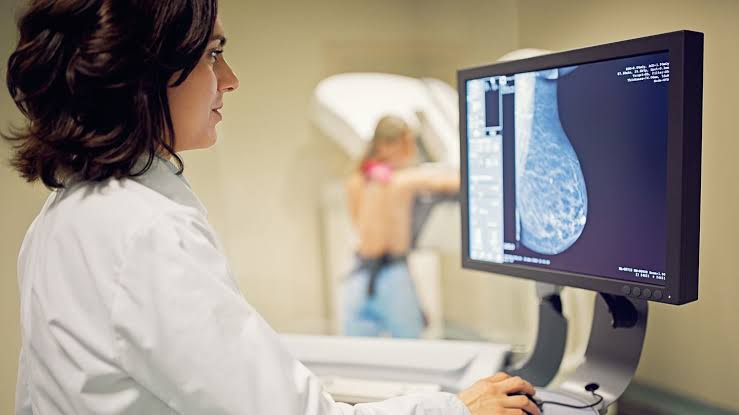Breast cancer not limited to women, men susceptible too –Physician
How has the NCS assisted in creating cancer awareness in the country?
The NCS, being the umbrella organisation for all cancer-related non-governmental organisations in the country, is charged with the oversight function of monitoring what organisations in the cancer space do, in terms of awareness creation, treatment and various interventions to make cancer care available to the teeming population. The NCS and other partner organisations engage the government in terms of policy direction, and budget for health, so that we can have universal health coverage for all citizens, not only those that have cancer. In terms of awareness creation, there are lots of myths and misconceptions, particularly in the country, due to traditional beliefs, religious beliefs and ignorance due to illiteracy. In this month of October, which is breast cancer awareness month, various organisations have been conducting a series of activities that have to do with awareness creation and screening services so that the grassroots can be reached and those that need to know can know. Prevention is better than cure but you can only prevent when you are well-informed. We are trying our best to make sure that we maintain the momentum of awareness creation to encourage our partner organisations to continue to do what they are doing for the well-being of cancer survivors in the country.
What’s the current prevalence of cancers in the country?
Nigeria happens to be among the low and middle-income countries in the world and, of course, when we are talking about the prevalence of cancer, the problem in Nigeria is the lack of data. The data-collection tools in Nigeria are somewhat deficient, so, for every cancer case you see or record in the hospital, there are hundreds out there that are undiagnosed. Just like everywhere in the world, not just in Nigeria, the three commonest cancers are breast cancer, cervical cancer and prostate cancer in men. In Nigeria, according to the recent global cancer observatory statistics from about two years ago, about 124,000 cancer cases were recorded and out of this figure, about 78,000 died within that year, that’s a mortality rate of over 50 per cent, which is a very poor index. In Nigeria, breast cancer is still leading, followed by cervical cancer, prostate cancer, then you talk of lymphoma and other forms of cancer. Any organ of the body can develop cancer if the predisposing factors are there.
On the lack of data, what about the cancer registry in the country?
Before now, the data collection system was somehow done haphazardly. It is only recently that the Federal Ministry of Health released a circular for all tertiary health institutions in the country to establish cancer deaths and they made another step in relocating the cancer registry from Ibadan to the FMoH in Abuja for central data collection. So, we pray that in the next few years to come, we will have a robust data collection and with the level of cancer awareness we are doing, more patients will come out for diagnosis early enough, for a good outcome. If cancers are detected early, most of them are curable.
Do we have more men coming down with breast cancer?
Breast cancer is predominantly the disease of women but there is one per cent of men also develop cancer but don’t forget that that one per cent does not mean one per cent of the entire population. So every male adult out there is a susceptible candidate for breast cancer. Again, when we are talking about the self-breast examination, people usually think of women doing the self-breast examination. Men too need to be doing the examination, especially men that have the outgrowth of breasts – some men have the outgrowth of breasts like that of women. It is about awareness and people getting informed because so many people out there don’t know that they can go for cancer screening through sample collection. People tend to hide these days and that is the major problem we have in Nigeria.
There are reports that sucking women’s breasts will help in reducing the risk of breast cancer. How true is that?
When you say sucking women’s breasts, we refer to it as breastfeeding. Breastfeeding in women that have given birth has a significant advantage in the prevention of breast cancer; it has been scientifically documented but I cannot categorically tell you that aside from breastfeeding, whether any form of sucking of breasts has an advantage towards prevention of breast cancer; but breastfeeding does.
So, this has nothing to do with men sucking their wives’ breasts?
I don’t think so.
Is there a particular part of the women’s breasts that is susceptible to breast cancer?
As an advocate, any part of the breast can develop cancer but it has been documented that the commonest cancer of the breast is that of the ducts, a terminology called ductal carcinoma. The ducts are like tubes that secrete into the lobules of the breasts and that is what generates something like breast milk that eventually comes out of the nipples. These ducts are like pipes that are connecting the lobules inside the breasts. So, most commonly, cancer occurs in the ducts, which is why ductal carcinoma is the commonest cancer of the breast. As I said, it can occur in any part of the breast tissue.
Is it common in the left or the right breast?
Naturally, there are no two breasts that are the same. So, in some instances, you see the right one being bigger than the left one but the preponderance of the development of breast cancer can be on any side. The factors responsible are the major things for the development of breast cancer. If a woman has an inflammation of the breast and there is a wound on the breast that is not taken care of, it depends on the side it is located and if these wounds become chronic, and you have a situation whereby the cells are beginning to change from the normal morphology, you can have the probability of having breast cancer, especially if that woman has other factors that may be responsible for developing breast cancer.
Would you say cancer cases have reached an epidemic scale in the country?
We have cancer as a pandemic in Nigeria because it is something that has been with us and something that is not going. So, it is a pandemic. If we detect it early, we will cure it early but we have issues when it has advanced and got to other organs and it is difficult to control.
There are reports that Nigeria has about seven radiotherapy machines in the country. How many of these machines are functional and where can patients access them?
The Federal Ministry of Health has six centres of excellence in each geo-political zones in terms of cancer care. In all these six, there are sophisticated machines that need trained personnel to manage and, of course, the machines develop faults that will warrant getting people from Lagos or outside the country to fix, so it’s not unexpected that some of these machines are not working at one point or the other but we are now making progress. Recently, the Federal Government gave go-ahead for the installation of state-of-the-art cancer treatment machines at the University of Maiduguri Teaching Hospital; the Usmanu Danfodiyo University Teaching Hospital, Sokoto; the Federal Medical Centre, Katsina and other hospitals across the country. Again, the private sector is now coming of age. In places like Lagos and Abuja, you have sophisticated cancer centres now as one-stop shops for cancer treatments, the only issue is affordability because of the low purchasing power and lack of universal health coverage. We have the positron emission tomography scan in the country, which means we are making progress.
In the whole of Africa, some countries don’t have any radiotherapy machines but in Nigeria, we have about 13 of them, but it’s not enough because we should have at least 300 radiotherapy machines for cancer treatments. We are making progress but we are not where we are meant to be yet.
Are these 13 radiotherapy machines functional and where can they be accessed?
The Federal Government introduced cancer health funds and in these hospitals, they are believed to have what it takes to treat cancer. For example, in the northeastern sub-region, we have radiation. UMTH is already working to make sure the cancer centre is up and running. It is the same when you go to Ahmadu Bello University Teaching Hospital, Zaria; the University of Nigeria Teaching Hospital, Enugu; the University College Hospital, Ibadan and the National Hospital, Abuja.
How many oncologists do we have in Nigeria?
From the data we have from the Association of Radiation Oncologists, we have less than 100 oncologists and 80 per cent of them are in urban areas. For example, if you come to my hospital in the remote village of Yobe, even in the local government where I work, that is a tertiary health institution, we don’t have a single clinical oncologist and these are the specialists that are supposed to treat cancer. For a population of more than 200 million, we are talking about less than 100 oncologists. So, it is a far cry from what should be on the ground.
On the budget for cancer in Nigeria, is this enough?
Nigeria is a signatory to the Abuja Declaration of 2001, where all countries in the African Union should budget at least 15 per cent of their total budget to health. Over 20 years and counting, Nigeria has never crossed the five per cent mark and we are talking about 15 per cent. Something that is a bit positive to us as advocates was the amendment to the National Health Insurance Scheme that made it an autonomous agency now -the National Health Insurance Authority and an increase in the budget under the vulnerable group that covers the 83 million vulnerable Nigerians. So, you have a system now that more Nigerians are covered.








